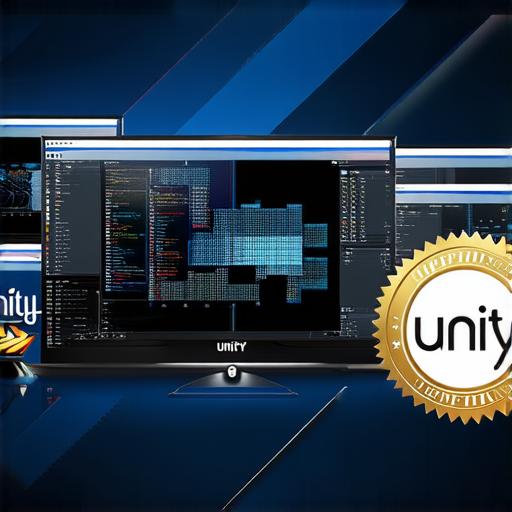
Unity is a popular game engine used by developers worldwide for creating interactive games, simulations, and virtual reality experiences. As with any technology, there are various certifications available to individuals who wish to demonstrate their expertise in using Unity. In this article, we will explore the different types of Unity certifications available and discuss whether they are worth the investment for developers.
The answer to whether a Unity certification is worth it depends on several factors such as career goals, current job role, and experience level. Here are some points to consider:
Types of Unity Certifications
Unity Certified Developer
The Unity Certified Developer (UCD) certification is designed for individuals who have experience creating games, applications, and interactive experiences using Unity. The UCD certification covers topics such as scripting, game design, and optimization. To become a UCD, candidates must pass the UCD exam, which consists of multiple-choice questions, coding challenges, and case studies.
Unity Certified Educator
The Unity Certified Educator (UCE) certification is designed for educators who teach Unity to students at universities or vocational schools. The UCE certification covers topics such as teaching methodologies, curriculum development, and pedagogy. To become a UCE, candidates must pass the UCE exam, which consists of multiple-choice questions, case studies, and practical demonstrations.
Unity Certified Developer – Virtual Production
The Unity Certified Developer – Virtual Production (UCDVP) certification is designed for individuals who work in virtual production environments such as film, television, and advertising. The UCDVP certification covers topics such as real-time rendering, motion capture, and virtual reality. To become a UCDVP, candidates must pass the UCDVP exam, which consists of multiple-choice questions, coding challenges, and case studies.
Unity Certified Developer – Web
The Unity Certified Developer – Web (UCDW) certification is designed for individuals who create web applications using Unity Web Player. The UCDW certification covers topics such as web development best practices, security, and optimization. To become a UCDW, candidates must pass the UCDW exam, which consists of multiple-choice questions, coding challenges, and case studies.
Unity Certified Developer – Mobile
The Unity Certified Developer – Mobile (UCDM) certification is designed for individuals who create mobile applications using Unity. The UCDM certification covers topics such as mobile development best practices, performance optimization, and cross-platform development. To become a UCDM, candidates must pass the UCDM exam, which consists of multiple-choice questions, coding challenges, and case studies.
Unity Certified Developer – Augmented Reality
The Unity Certified Developer – Augmented Reality (UCDAR) certification is designed for individuals who create augmented reality experiences using Unity. The UCDAR certification covers topics such as AR development best practices, tracking, and optimization. To become a UCDAR, candidates must pass the UCDAR exam, which consists of multiple-choice questions, coding challenges, and case studies.
Unity Certified Developer – Artificial Intelligence
The Unity Certified Developer – Artificial Intelligence (UCDAI) certification is designed for individuals who create AI-powered applications using Unity. The UCDAI certification covers topics such as machine learning, natural language processing, and computer vision. To become a UCDAI, candidates must pass the UCDAI exam, which consists of multiple-choice questions, coding challenges, and case studies.
